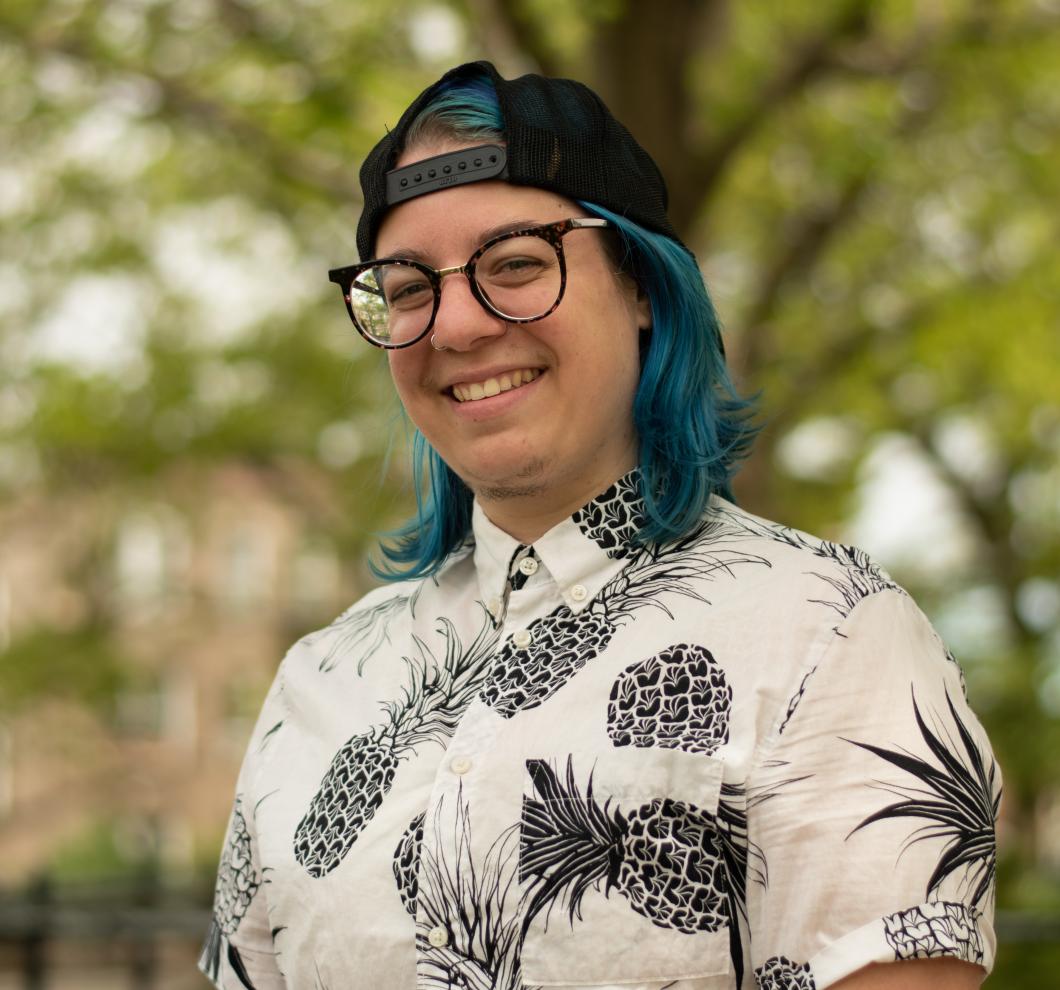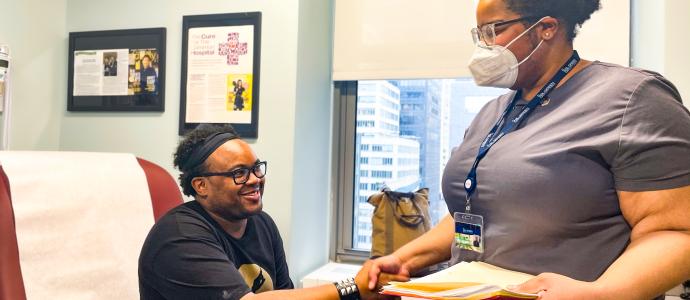Darren Simon is an openly gay man with a disability and knows firsthand the challenges many in his community face as “outsiders.” Simon receives medical services at YAI’s affiliate, Premier HealthCare, and will soon be joining a day habilitation program in Harlem. He’s also a part of YAI’s Free With Pride LGBTQ group and uses his experience to advocate for others. That’s why he felt the need to share his story during Double Outsiders, a YAI Knowledge training that helps staff and other caregivers become better allies to people with intellectual and developmental disabilities (I/DD) who also identify as LGBTQ.
“Times have changed. We have more people we are supporting who are identifying as LGBTQ,” said Consuelo Senior, Associate Director of YAI Knowledge and one of the Double Outsider trainers. “Staff should have an awareness of changes in language in this evolving community, especially in this era where we talk about diversity and inclusion. I am hoping people will realize that in this field, they need to be comfortable with being uncomfortable.”
With a goal of making every member of this community feel included, the curriculum combines essentials of communicating without assumptions or judgment and specific tools for people supporting someone with a disability who identifies as LGBTQ. Double Outsiders considers the use of respectful terminology, laws and human rights, and ways to validate and support someone’s sexual identity.
A survey by the Movement Advancement Project revealed that LGBTQ people are more likely than the general population to have a disability and face systemic challenges such as difficulty finding employment. The findings show 40% of bisexual men, 36% of lesbian women, and 36% of bisexual women reported having a disability, compared to the 27.2% national average.
The training uses the ALLISIT model of sexuality counseling, a technique for supporting someone when the caregiver or staff member has limited information. It educates them on how to assist without personal biases. For example, an encouraging response when dealing with often dismissed feelings of people with I/DD who identify as LGBTQ can be, “It sounds like you may need more information to make your decision, I can come with you so you can talk to a behavior intervention specialist/trainer who can help you better.” Showing support while acknowledging you don’t have the specific expertise to effectively help the person is key.
Using gender-inclusive language instead of the traditional male/female stereotypes helps foster a safe environment for discourse. For instance, saying “Thank you, ladies and gentleman,” can be revised to “Thank you, everybody.” Phrases like “you guys” can be replaced with the more inclusive “you all.”
Like all YAI trainings that are continuously updated with the latest information, the three-hour interactive Double Outsiders training was revamped this year after YAI recognized a growing need for resources to better support this population throughout the I/DD field. Attendees from within and outside of YAI included social workers, direct service professionals, and administrators, teachers, and parents.
A longing to connect led Barbara Jenkins to the training. As a parent of a son with autism who also identifies as transgender, she had been looking for a sense of community, but never found one that acknowledged her particular struggles. “Before the training I felt like I was in a box and isolated because no one I knew had these issues,” Jenkins said. “There were always support groups for parents with children who had autism, but never one that addressed a child with gender dysphoria.”

Savannah Spencer, an attendee who oversees the self-advocacy program at Lifetime Assistance Inc., said she hopes to take what she learned and help her staff successfully navigate difficult conversations with people they support. “I think just being more aware of the proper verbiage so we don’t offend can go a long way,” she said.
Co-trainer Jo Fuschetto, a direct support professional at YAI who identifies as non-binary and uses they/them pronouns, led discussions while offering the perspective of someone in the community.
“For me, it’s all about being fluid,” they said. “We have to educate, and we can’t do that without tools, and this kind of training is very necessary to help people have an open mind and advocate for those who can’t.”
“Accept the person for who they are and don’t try to change them,” said Simon. “It makes a big difference to have the right kind of support from anyone; put your biases aside and see me for me.”

